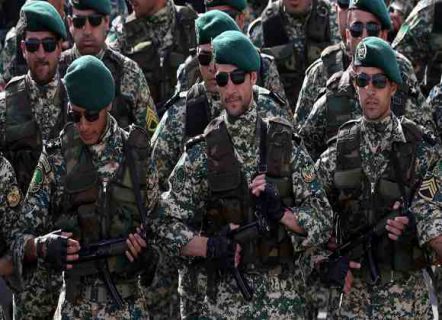Deception or Confusion?

Who will flinch first in Trump’s phony war on Iran?
I take no issue with the proposition that ‘war is deception’. But President Donald Trump’s current war preparations against Iran smack more of confusion. His despatch of additional ground, naval and air forces to the Gulf reflects this. It betrays a lack of any strategic vision, and has singularly failed to impress or intimidate the enemy.
Take for example his recent announcement that 1,500 extra troops are being sent to the region to protect the forces already there from purported threats from Iran’s Revolutionary Guard (IRGC). What can such a small force possibly do to protect the 80,000 personnel deployed in the Middle East, including 14,000 in Afghanistan and 8,000 in Syria and Iraq? Who is Trump trying to kid? Himself, his voters, or the allies in the region he has promised to protect?
Trump denied last week’s New York Times report that the Pentagon was planning to send 120,000 troops to the region. By going on to send a fraction of that number, is he carrying out the planned build-up in stages, or just kicking up dust?
If the Iranian threat to US forces in the region is so serious, as Acting Secretary of Defence Gen. Patrick Shanahan maintained, how can this modest number of soldiers counter it? Or is there a hidden agenda here?
I am no expert in military matters – neither is Trump or his administration’s chief hawks John Bolton and Mike Pompeo. But one presumes that when armed forces are deployed, that is the outcome of a strategic political decision taken at the highest level. So, we may wonder, what was the nature of that decision, and how will it be implemented?
The way the US administration has been incessantly pointing the finger at the IRGC – for the attacks on four oil tankers off the UAE port of Fujairah and the firing of missiles into Baghdad’s Green Zone close to the US embassy — suggests it still might launch retaliatory raids against Iranian interests. Trump has said he will respond to any attack on his country’s interests or allies in the region.
The question is what form might this retaliation take? An overwhelming assault on Iran, or ‘surgical’ strikes against selected military targets? And how would the Iranians react in either case?
We outside observers have no answers. But we know that when the US invaded and occupied Iraq in 2003 to effect regime-change, it was targeting a lone, isolated and friendless state, which had been through two devastating wars and was subject to the most draconian sanctions ever imposed. And it led a coalition of 33 countries including powerful European states.
Things would be very different in any forthcoming war on Iran. The US would be facing a formidable and ideologically-driven foe, with offshoots in several other countries that can, once the signal is given, open the gates of hell to the US and its regional allies – above all Israel – on several fronts. And it would be fighting alone. Its only supporters would be Israel and a few lightweight Gulf states –whose lack of military competence has been demonstrated by their failure to suppress Yemen’s ill-equipped Houthis despite throwing all their sophisticated American-supplied weaponry at them for nearly five years.
Iranian leaders have been vowing never to surrender, warning they have the capacity to sink Americans warships, and reminding the US that their armed forces also have a presence in Lebanon, Yemen, Afghanistan, Palestine and elsewhere. This may be psychological warfare, but it is true, and US military commanders evidently take it seriously.
The possibility of war breaking out has not receded altogether. The US lost face in the region by failing to respond to the tanker attacks, the warning-shot fired into the Green Zone, and the Houthi drone raids on Saudi Arabia’s Gulf-to-Red Sea oil pipeline – though the Houthis insisted these were carried out solely on their own initiative and in the context of the Yemen War.
So the time-bomb continues to tick down towards the moment of detonation. It has truly turned into a battle of wills: Who will flinch first, whether on the battlefield or — in secret or the glare of publicity — around a negotiating table?
 TheAltWorld
TheAltWorld 
0 thoughts on “Deception or Confusion?”